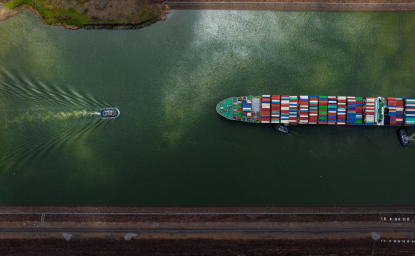334. Ending the State-Building Impasse: What Can Be Learned from Previous EU Enlargements that Might Offer Solutions for Bosnia and Herzegovina?

This is a summary of a presentation made at the February 22, 2007 conference "Bosnia-Herzegovina at an International Crossroads," which was held at the Center for Strategic and International Studies and co-sponsored by the Dayton Project.
Over the last two years, the international community's policy has been to accelerate the process of state-building in Bosnia and Herzegovina, so that a strong, unified state can "plug into" European institutions. Certainly, the United States hopes that the European Union (EU) can replicate the strong and positive impact it has had on its 10 member states from postcommunist Europe. At the same time, the EU is eager to test the capacity of its Common Foreign and Security Policy in the Western Balkans and therefore has taken up the challenge to play a larger role in Bosnia and, hopefully, lead it through the accession process.
EU accession is essentially a very good long-term plan for the entire Western Balkan region. The EU enlargement process has been heralded as the most successful EU foreign policy, and most observers agree that the EU has had a positive impact on postcommunist democracies in East Europe. The beauty of the EU process is that it uses the "soft" power of conditionality to compel countries to adopt democratic reforms. In exchange for implementing reforms, countries can become part of Europe's so-called "sphere of peace and prosperity."
However, the idea that EU conditionality will work in Bosnia seems to have hit a few snags over the last year. First, the failure of the new constitution further delayed Bosnia's progress. Second, the campaign leading up to elections last fall seemed to be particularly divisive, and the electoral results did not produce a dramatic change, for which many had hoped: in the end analysis, the parties that succeeded tended to be those that promote continued ethnic-based governance in Bosnia, not those that could cooperate for the creation of a unified Bosnian state. Another indication that things are not going well seems to be best illustrated by the fact that High Representative Christian Schwarz-Schilling has resigned and that the scheduled closing of the Office of the High Representative (OHR) in June 2007 has been delayed for another year.
In many ways, Bosnia and Herzegovina is facing the same problems that other countries transitioning from communism faced throughout the 1990s, when politicians (with no experience in democratic practices or institution building) were expected to make the right choices to create, out of the remnants of communism, open societies and market economies. Yet, Bosnia has additional hurdles to surmount due to the fact that it is a post-conflict state, loosely knitted together by the Dayton Peace Accords. Given this difference, it seems unlikely that Bosnia and Herzegovina will respond in the same way to EU conditionality as, say, Latvia did.
Among the variety of opinions about the achievements of the EU accession process, there seems to be consensus on the fact that while the EU has been successful in helping to transform the legal environment in accession countries, the EU can do little to imbue societies with a liberal democratic spirit (let alone compel the intra-state unity needed in Bosnia) which is necessary to ensure that the newly adopted laws and norms will be implemented. It seems likely that Bosnia's accession process will require the Commission to come up with creative policies and targeted requests in order to be successful there.
European integration and Bosnia: what went wrong?
The plan for the Western Balkans seems simple: with the EU accession process as a map, all of the countries of the conflict-ridden region will find peace and prosperity through economic integration. However, several factors seem to be aligning in a way that may undermine this grand plan.
First, there is no "plan B" for how to deal with the Balkans and this limits the EU's power. In the first wave of EU accession by postcommunist states, the EU had a clear advantage in the negotiations, and it was often declared that postcommunist counties could either join the EU, or be left to try to muddle through the triple transformation whilst resisting negative influences of globalization alone. Countries, such as the Baltic States (which also feared Russian aggression) were particularly susceptible to being ‘cornered' by the EU. Positive competition also played a role, particularly in Slovakia, which seemed to push towards democratization when it was not included in the list of accession countries included in the 1997 Agenda 2000. By contrast, in Bosnia, it is the EU and the wider international community that have the primary responsibility for fostering the development of a peaceful democracy, not the Bosnians. After a decade of both military and civilian international intervention, it still is not clear that there is enough of a democratic force within the society to pursue reforms. With the retreat of the US and UN from the region, EU accession is the only plan left. As a result, the countries of the Western Balkans seem to be sitting on their hands, waiting for it to happen, rather than initiating the reform process. Moreover, in the case of the Balkans, there seems to be a predilection to give away some of the "carrots" (e.g., visa facilitation) before conditions are met, which will further weaken the EU's power of conditionality.
Second, Bosnia is far behind the countries involved in the last wave of enlargement, because the Dayton Peace Accord's principles contradict European values. The list of problems is very long. For instance, the Office of the High Representative, which essentially serves as an external governor general of the country is fundamentally undemocratic, and raises the question of Bosnia's sovereignty. Nevertheless, as recent experience seems to suggest, getting rid of the OHR may undermine the integrity of the state. Even without the OHR, the current constitutional structure, based on the Dayton Peace Accords has been deemed by the Venice Commission as "neither efficient nor rational and lack[ing in] democratic content." This is especially evident in the DPA's insistence on the protection of so-called "ethnic rights," which creates a complex system of parallel institutions and quotas. In addition to creating an expensive, inefficient and often ineffective government, an institutional structure that favors certain ethnicities is fundamentally discriminatory, and goes against the EU's insistence that societies and markets are open to free movement for all Europeans.
Third, there seems to be a disconnect between how the EU is perceived in the US and Bosnia and how the enlargement process actually functions in practice. This disconnect is perhaps the most dangerous to the transatlantic partnership in the Western Balkans because it has already caused resentment and finger-pointing, with each side blaming the other for lost time. I do not think that this disconnect is not the fault of the US policy makers or the Bosnian leadership—if pressed, most Europeans would not be able to accurately and succinctly explain how the accession process works and what the effects of accession are. This process is extremely complex, and each country goes about it in its own style and in its own time.
Those seem to me to be some of the biggest problems, though there are other issues to consider, such as the perceived diminishing interest in further enlargement by some member states and the questionable capacity of the EU to accept new members before it reforms itself. But I think a lot of these other factors would be diminished if Bosnia and Herzegovina was truly ready to begin the accession process.
In order to get out of this status quo, I contend that there is a conceptual trap that we need to get out of so that we can be in the right mindset to figure out what to do in Bosnia. The trap is that policy makers on both sides of the Atlantic seem to be operating as though the EU is a democracy-building machine. The truth is that the EU was never designed to build democracies, or states for that matter. The fact that it has helped democratization along in postcommunist countries seems probable, but precisely how those mechanisms work—and for what exactly the EU can take credit—remains a subject of much research, analysis and debate.
I would like to present a few observations that have been made about the EU accession process to offer a better sense of what goes on during accession, what mechanisms influence the reform process and what outcomes seem to be shared by all new member states. These observations are not mine, but come from a survey academic literature on the topic of EU accession. I hope that this will give us a better idea of how to tailor Bosnia's unique problems and priorities to the process of European integration.
What have we learned from the process of EU accession by postcommunist states?
1). EU conditionality is as good as it gets in terms of achieving positive external influence on democratically-adopted domestic reforms. The reforms adopted by the postcommunist member states in order to get into the EU were quite diverse (as they were geared towards specific issues that needed to be addressed). And they were also quite far-reaching in terms of effecting that which is traditionally thought of as the purview of the sovereign state: for instance several countries had to make constitutional amendments or amend their naturalization procedures in order to comply with EU requirements. The best thing about EU's influence is that it is so ‘hands off': the EU insists that the solutions to problems and reforms must be conceived by the accession country, in accordance with that country's democratic institutional structure and legal culture. The EU can point out what is wrong with a country's laws, but it cannot draft legislation to fix that problem: proposals and solutions must come from the accession country. As a result, the reforms that are adopted are completely home grown (even if the initiative to adopt them came from outside). So, at the end of this process, not only is the reform adopted, but the state's institutions and political parties have proven that they can solve differences through democratic means, and that they have what it takes to be a fully-functioning member of the EU.
2). The reforms that the EU requires need to be based on hard law within the acquis communautaire, or on other international institutions' treaties to which countries have become parties. The acquis define European norms, which are decided upon by consensus of all EU member states. This means that these norms are not necessarily comprehensive or coherent, since they only cover those issues on which the member states were able to agree upon by consensus. For example, there are lots of norms when it comes to non-discrimination policies within labor codes, or consumer protection issues, but absolutely nothing that deals with minority rights. This means that when there is little agreement among member states, then there is low "density" of acquis on an issue, and therefore more room to maneuver for accession states. That begs the question of whether a "European model" exists and, if a model does not exists: how can the EU influence reform through enlargement?
Moreover, it seems important to consider that the enlargement process does not take into account the peculiarities of any individual country, but demands across-the-board adoption of the aquis. While there is some wiggle room in adopting the acquis into the country's "legal culture" no opt-outs were allowed in the most recent enlargements. The EU has some flexibility to ask accession countries for more than what is in the acquis, by testing a country's compliance to the treaties of other international organizations to which it is a party. In that way, institutions (namely the Council of Europe) that do have jurisdiction on issues such as minority rights can be brought into the accession process. However, experience shows that these norms are less strongly applied by the EU during the enlargement process than norms that are in the acquis.
3). EU accession requires that a state be able to assimilate and comprehend a huge system of laws and participate in a complex supra-state bureaucratic structure. Therefore, even if it is not a specific priority or goal, the effect of the EU accession process is to centralize state power in the executive branch order to improve the state's institutional capacity.
4). The EU has no mechanism for civil society building or other traditional democracy-promotion efforts in which USAID and other bilateral actors as well as independent philanthropists have been engaged in postcommunist Eastern Europe. The EU's pre-accession funding and post-accession structural funds are not geared towards NGO development, election monitoring, government oversight, or human rights promotion.
5). The final contention that has been presented in academic work is that for the EU accession to work, a country already has had to achieve a certain level of democratization. This is because the EU has no mechanism for transmitting "democratic sensibilities" to other countries. Moreover, some scholars have suggested that accession countries were only successful in "faking" democratic values, rather than really embracing them.
The sum of these observations point to the fact that, for EU conditionality to kick in, not only does a country need more or less functioning democratic institutions, it also needs to have the vast majority of its political parties agree in principle that EU enlargement is the shared priority of the country. This is a process that happens from within the country, when politicians let go of their differences in favor of working together for the one shared goal of the electorate: to become European. This requires a critical mass of the population to actively ask their politicians to make this a priority.
This has not yet happened in Bosnia, and it is difficult to see how the EU's institutions might help this process along. One could argue that it was the 1997 Agenda 2000 that made the EU's commitment to enlargement clear, and put all postcommunist countries on a path that would lead them to accession. Perhaps the Thessaloniki Council decision to commit to EU accession of the Western Balkans was comparable to the Agenda 2000, but it does not seem to have had the same effect in Southeast Europe. EU enlargement continues to take a back seat to other priorities in this region and until that changes, there will be nothing to kick-start the accession process in earnest.
Moreover, there is clear resistance in Bosnia and Herzegovina to the EU's ‘hands off' approach, since it would require all sides to adopt reforms through consensus and compromise. Bosnians seem to think that they cannot or will not agree with each other. Yet, even if the Bosnians want the Commission to draft reforms for them to adopt, the EU does not operate that way: the accession process is meant to allow a country to prove that it has what it takes to draft and adopt reforms through democratic means. Moreover, it is important to remember that the EU's acquis were not adopted with Bosnia in mind, and were never intended to serve as a legal framework for state-building, but as a supra-state legal structure to bind the states of the Union together. Therefore, the accession process presupposes that an accession country has already successful built a state, and is ready to adapt its existing institutional and legal system so that it can be embraced by the EU legal system.
Nevertheless, in the most recent enlargement, the EU did manage to compel certain constitutional and human rights related reforms through the accession process. The Commission's Regular Reports on the progress of acceding countries were used to guide countries to adopt certain reforms by indicating what laws or practices run counter to European values or EU law. This is an important tool since it makes specific reference to problematic national legislation, and I will suggest some methods of tailoring it to the Bosnian case in the following sections.
Regarding the issue of the centralizing effect of EU enlargement, this will be something that would require a wholesale reform of the Dayton Peace Accord. At the end of the day, the institutional system built upon Dayton will need to be almost entirely revamped in order for Bosnia to follow the process that other postcommunist countries have undergone. The question is whether EU's "magnetism" is strong enough in Bosnia to hold the country together without the Dayton Peace Accords? That is the central challenge and it is one that will require long-term, focused interest and investment, not only by the EU but by the United States as well. The EU accession process should not be seen as a way around the most difficult problems facing Bosnia. Rather, the EU accession process will make the issues of Bosnia's state structure, ethnic-based voting, and state cohesion all the more critical. What is needed now is not a policy based upon faith in the EU's "magnetism," but a complex policy based in EU and international law that is tailored to Bosnia's unique problems.
Author


Global Europe Program
The Global Europe Program is focused on Europe’s capabilities, and how it engages on critical global issues. We investigate European approaches to critical global issues. We examine Europe’s relations with Russia and Eurasia, China and the Indo-Pacific, the Middle East and Africa. Our initiatives include “Ukraine in Europe”—an examination of what it will take to make Ukraine’s European future a reality. But we also examine the role of NATO, the European Union and the OSCE, Europe’s energy security, transatlantic trade disputes, and challenges to democracy. The Global Europe Program’s staff, scholars-in-residence, and Global Fellows participate in seminars, policy study groups, and international conferences to provide analytical recommendations to policy makers and the media. Read more

Explore More
Browse Insights & Analysis
Africa Year In Review 2024: From Headlines to Trendlines


